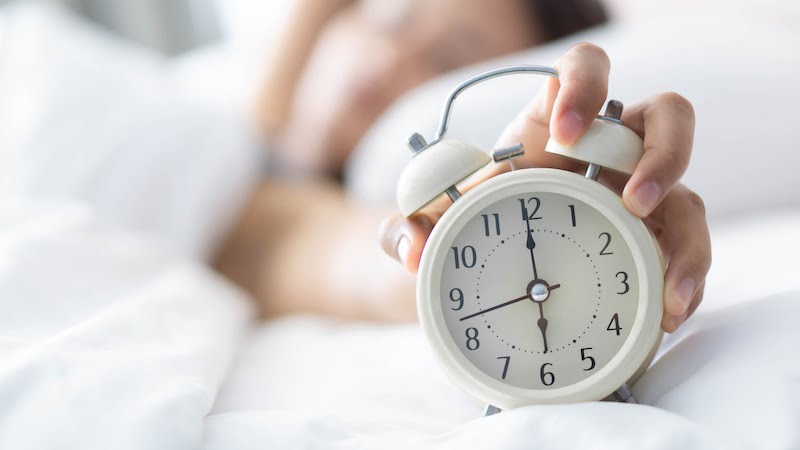
Did you hit the snooze button on your phone this morning when the alarm went off so you could snooze for a few more minutes? Then you shouldn’t be alone with this. But: Many people feel guilty if they can’t get out of bed straight away. Snoozing can even have advantages.
Over two-thirds of people occasionally hit the snooze button on their smartphone when their alarm goes off. This emerges from a study by Stockholm University, in which over 1,700 adults took part. According to this, the cognitive performance of those who click on “snooze” the most often increases.
Was ist Snooze?
The term snoozing means briefly interrupting the alarm clock or the alarm function on the smartphone in order to be able to snooze for a few minutes before getting up. Many people even start the morning by snoozing repeatedly, delaying their getting up time even further.
The problem: Those who snooze frequently often have a guilty conscience afterwards. But is snoozing in the morning really as negative as its reputation? And: How does snoozing affect our sleep and our health?
The snooze button can have benefits
According to the study, the “snoozer types” had an average of around 22 minutes of additional sleep after the first alarm went off. To get to the bottom of the consequences of snoozing, the researchers recruited 31 test subjects who spent a few nights in a sleep laboratory.
The test subjects stated in advance that they repeatedly used the snooze button on their smartphone in the morning on several days a week. The researchers asked them to test two different techniques during waking up in the laboratory. Subjects were asked to either get up immediately after the alarm went off or click the snooze button three times to snooze for a total of 30 minutes.
Snooze: Those who snooze are objectively more awake
The result: The subjects who snoozed in the morning were more awake throughout the day. According to psychologist Tina Sundelin, the study’s lead author, this would also have had an impact on some cognitive tests. The participants had to solve simple arithmetic problems or remember words in order to repeat them later.
One of the reasons could be that those who sleep briefly between the alarm clock ringing generally find it easier to fall asleep. In addition, they are not torn out of the deep sleep phase. Waking up more gently could also have a positive effect on the ability to absorb food.
The study also shows that the cognitive results were only better immediately after getting up – but not throughout the entire day. Due to the relatively small number of participants, the study is only of limited significance. However, the researchers hope to conduct further research in this area to investigate possible long-term effects of snoozing.
Also interesting:
Source: https://www.basicthinking.de/blog/2023/10/23/schlummern-snooze-taste-vorteile/


